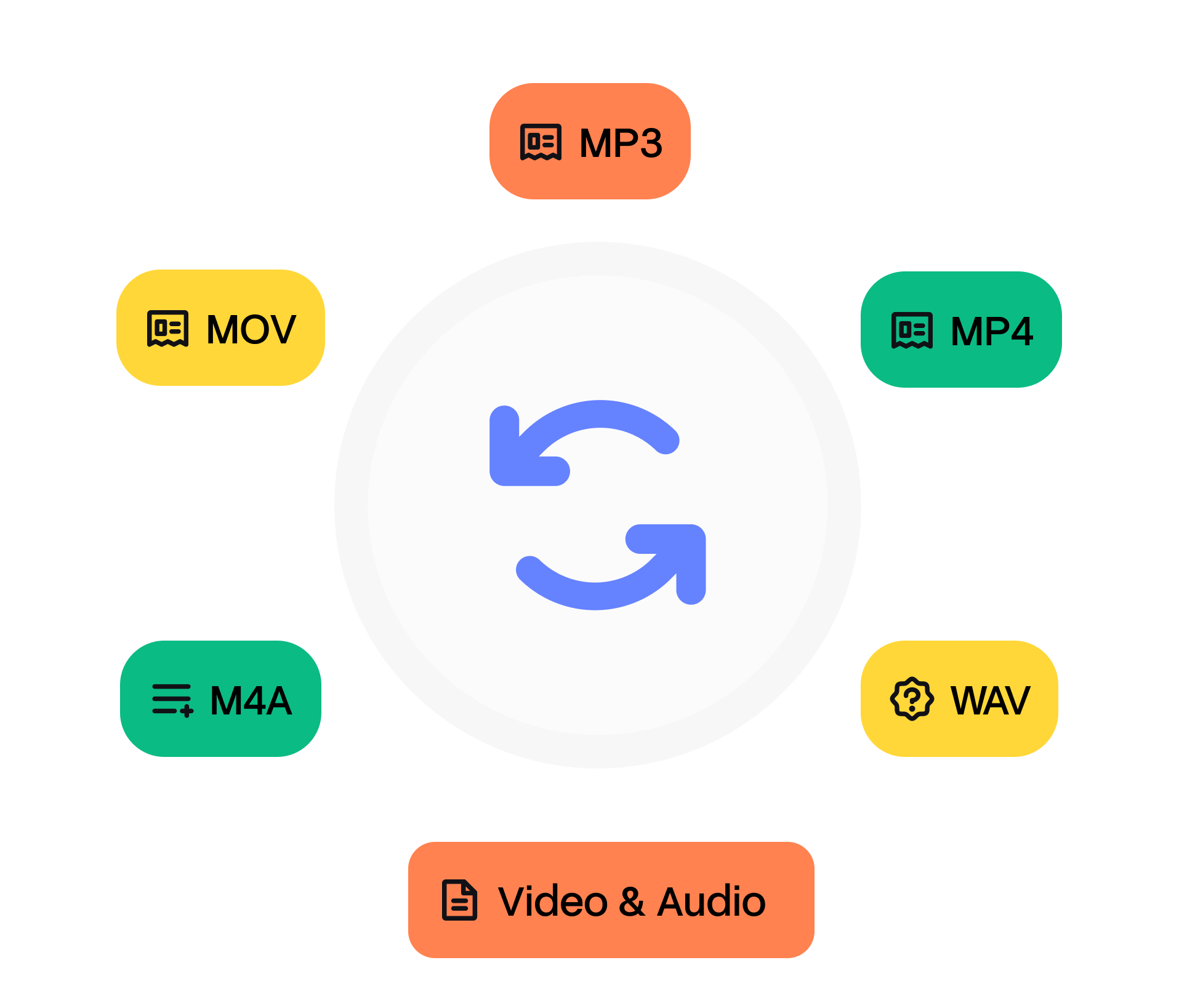1. Upload your AVI file
Start by dragging and dropping your AVI file into the upload area, or click to browse your device and select your file in the list.
Convert your AVI (.avi) file to MKV (.mkv) in seconds straight from your browser. No installs. No watermarks. 100 % free.
Convert from AVI to MKV but also 47+ other formats.
No signups, no fees, no hidden restrictions. Convert AVI to MKV directly in your browser for free.
We take your security seriously. All file transfers use 256-bit SSL encryption.
No installs needed; convert AVI to MKV right from your browser, on any device, anytime.
Start by dragging and dropping your AVI file into the upload area, or click to browse your device and select your file in the list.
Next, pick MKV as the format you’d like to convert your video into. Alternatively, we support +47 formats that you can choose from. When you’re ready, hit the Convert button.
Once the conversion is complete, you’ll get a download link right away. Just click to save the file to your device. It’s fast, easy, and doesn’t require any software installation.

Audio Video Interleave (AVI) is Microsoft’s venerable multimedia container introduced with Video for Windows. It stores audio and video streams in interleaved RIFF chunks, allowing simple players to read sequentially from disk. While it supports multiple codecs, it lacks modern features like B‑frame timestamping and embedded subtitles. Released in 1992 to counter Apple’s QuickTime, AVI became ubiquitous on Windows 95 thanks to the Indeo and Cinepak codecs. The rise of DivX in 1999 rejuvenated AVI for internet sharing, but mismatched VBR audio led to sync headaches. Microsoft replaced it with ASF/WMV and eventually MP4, yet legacy camcorders and CCTV systems still output AVI.
Matroska Video (MKV) is a flexible open container that can accommodate virtually any codec, multiple subtitle tracks, and chapter points. It is built on EBML (Extensible Binary Meta Language), a binary cousin of XML, allowing unlimited, self‑describing elements. The project began in 2002 after developer Steve Lhomme forked the failed MCF container. With the explosion of H.264 ‘fansubs’, MKV became the default wrapper for anime communities, bundling soft‑subs and styled karaoke effects. In 2013 Matroska was standardised within the IETF as the basis for WebM, cementing its longevity.
Need to convert your audio file from AVI to MKV? It’s simple. Just upload your file, choose the output format, and click ‘Convert’. That’s it — no downloads, no complicated software, and no hidden costs. Our tool is designed to be fast, secure, and completely free, so you can turn your files into the format you need in seconds.
Whether you’re converting audio for sharing, editing, or playback on different devices, our converter ensures high-quality output every time. After your conversion, you’ll also have the option to transcribe video to text, making it easy to turn your MKV files into accurate, editable text in just a few clicks.
Windows Media Player, VLC, and MPC‑HC open most AVI files. If the clip uses an obscure four‑character codec (FourCC), install the corresponding VFW decoder or remux to MKV with FFmpeg. Adobe Premiere Pro and DaVinci Resolve import AVI but may transcode on the timeline for GPU effects.
VLC, MPV, and Kodi handle MKV flawlessly on every OS. Editing suites such as DaVinci Resolve import common codecs like H.264 or ProRes within MKV, but for delivery you may still export MP4. MKVToolNix lets you split, merge, and tag tracks without re‑encoding.
Other tools